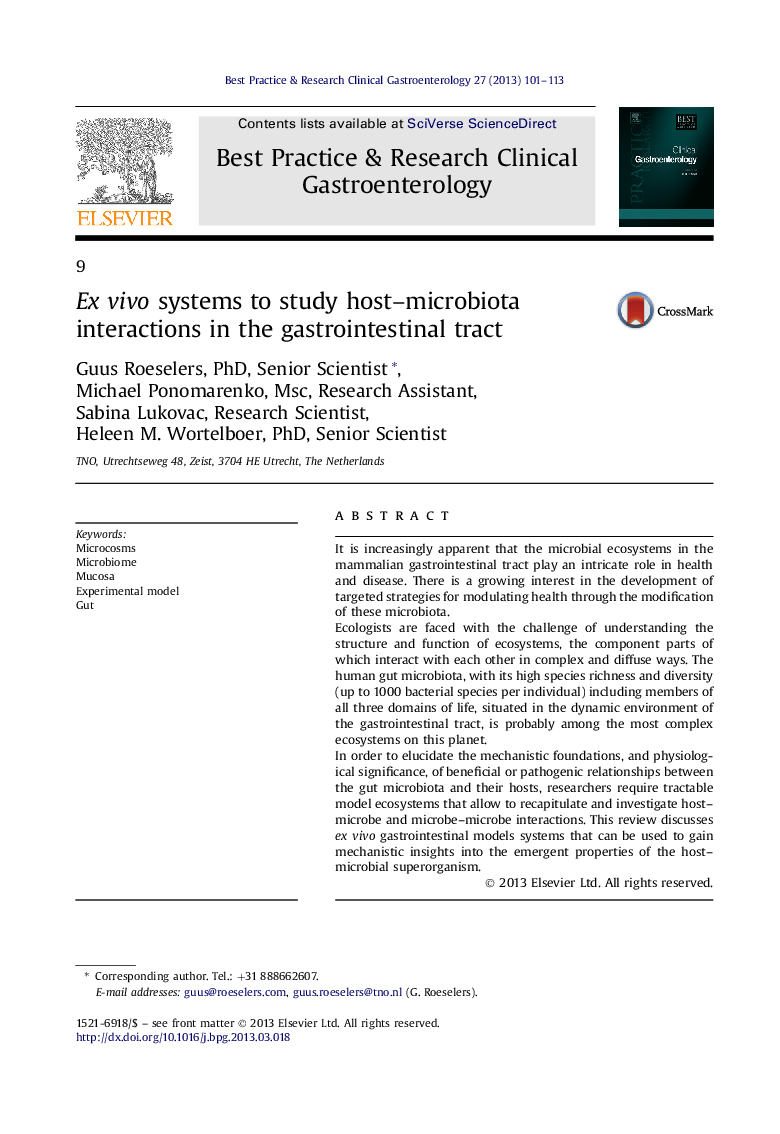| Article ID | Journal | Published Year | Pages | File Type |
|---|---|---|---|---|
| 6086371 | Best Practice & Research Clinical Gastroenterology | 2013 | 13 Pages |
It is increasingly apparent that the microbial ecosystems in the mammalian gastrointestinal tract play an intricate role in health and disease. There is a growing interest in the development of targeted strategies for modulating health through the modification of these microbiota.Ecologists are faced with the challenge of understanding the structure and function of ecosystems, the component parts of which interact with each other in complex and diffuse ways. The human gut microbiota, with its high species richness and diversity (up to 1000 bacterial species per individual) including members of all three domains of life, situated in the dynamic environment of the gastrointestinal tract, is probably among the most complex ecosystems on this planet.In order to elucidate the mechanistic foundations, and physiological significance, of beneficial or pathogenic relationships between the gut microbiota and their hosts, researchers require tractable model ecosystems that allow to recapitulate and investigate host-microbe and microbe-microbe interactions. This review discusses ex vivo gastrointestinal models systems that can be used to gain mechanistic insights into the emergent properties of the host-microbial superorganism.
